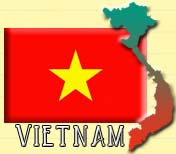Vietnam prime minister takes some economic advice, not all
 Hanoi - At a weekend meeting with economic experts, Vietnamese Prime Minister Nguyen Tan Dung agreed the country needed to shore up macroeconomic problems, but postponed recommendations on cutting back wasteful government investment, an economist who was present said Monday.
Hanoi - At a weekend meeting with economic experts, Vietnamese Prime Minister Nguyen Tan Dung agreed the country needed to shore up macroeconomic problems, but postponed recommendations on cutting back wasteful government investment, an economist who was present said Monday.
The roundtable discussion with 19 prominent economic experts and ministries, which was closed to the press, was held on Saturday in Hanoi.
"Some of the economic experts at the meeting complained the government had not done well in ensuring the quality of economic growth, social development, and education," said the economist, who spoke with Deutsche Presse-Agentur dpa on condition of anonymity.
He said some recommended the government do more to ensure public investment goes to productive projects rather than inefficient ones, but that Dung said such moves would be difficult at this time.
Dung's statement after the meeting emphasized "global economic turmoil" as the source of Vietnam's economic problems this year. He focused on government efforts to hold the inflation rate in 2009 to under 10 percent, but did not address the issue of wasteful spending by state-owned enterprises.
Nguyen Van Khach, a government official in charge of organizing the weekend roundtable, said the purpose was "to assess the real situation of the Vietnamese economy and its prospects in the remaining months of this year and into 2009."
Those present at the meeting reportedly included current and former chiefs of Vietnam's Chamber of Commerce and Industry and several top-level government economic research groups.
Past Vietnamese premiers consulted regularly with a board of independent economists known as the Prime Minister's Research Group, but it was disbanded in July, 2006, shortly after Dung came into office.
Dung emphasized improvements in Vietnam's economy over the past eight months due to the government's inflation-fighting measures, but acknowledged the situation was still volatile. The monthly inflation rate dropped from a high of 3.9 per cent in May to 1.6 per cent in August.
Experts and investors have criticized the government for failing to make its policy-making process more clear.
"No one can forecast what the inflation rate in Vietnam will be unless the government's macroeconomic policy becomes transparent," said Nguyen Quang A, director of the Institute for Stable Development in Hanoi. (dpa)